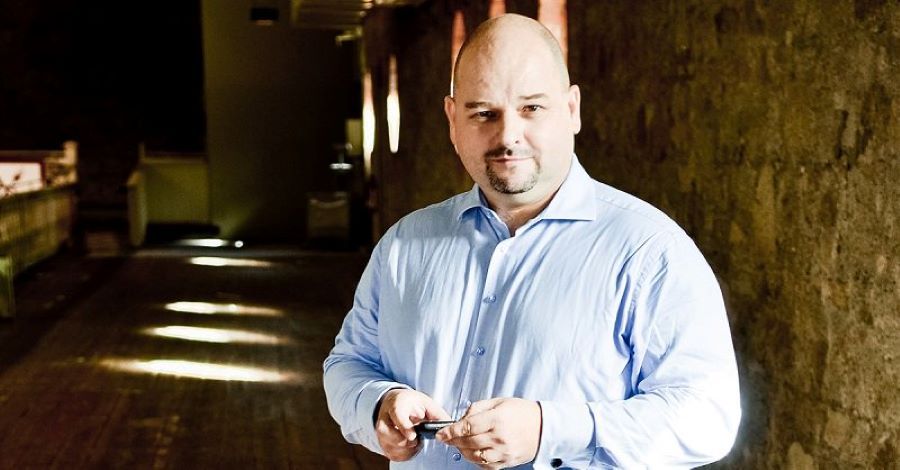Why Ireland is taking an interest in the UAE's cleantech sector

The UAE government is determined to become a regional hub for clean energy development and production, encouraging the adoption and development of innovation in the cleantech field. In 2017, the government launched the UAE Energy Strategy 2050, which aims to boost the contribution of clean energy to the total energy mix from 25 per cent to 50 per cent by 2050, and increase the consumption efficiency of individuals and corporates by 40 per cent.
This has resulted in global companies setting up base in the country to explore ways to lower emissions, promote sustainable energy, and spur clean energy production. Among these companies are the Irish cleantech companies that are supported in the region by Enterprise Ireland; Many of which use Dubai as a foothold for Irish startups to start their businesses and expand regionally and globally.
Among the Irish cleantech companies operating in the UAE are NuLumenTek Ltd, Automsoft, Suparule Systems, ESB International, and ResourceKraft.
We spoke with Mike Hogan, regional manager for the Middle East and North Africa (Mena) region at Enterprise Ireland to learn more about the government-led institution and the reasons why it is taking an interest in establishing a strong footprint in the Middle East.
Can you tell us more about Enterprise Ireland and its goal?
In Ireland, we don't have any kinds of indigenous energy resources, and we have high energy prices because we are a net energy importer. As a consequence, we tend to encourage the development of small businesses that focus on cleantech activities. Also given that we have a very large industrial base, we are also focused on sustainability issues around the elimination of waste from production activities. While energy prices are high, and Ireland is a small country; we survive or die by exports because our home market is small.
As a company, we are involved in everything from ICT food production, sustainability, smart farming, to industrial waste management. Our job is to primarily help Irish indigenous businesses grow, innovate, and then export. We help companies from the moment of their foundation through to scaling. We've got 40 offices around the world to help them do that as well.
Why are you keen to expand into the Middle East?
We're a believer in partnerships, so we're keen to develop partnerships between Irish companies and local partners here. We talk to startup ecosystems across the Middle East, define routes and partnerships for our companies to use bases in the Middle East to expand operations and footprint, and for most Irish companies, that tends to be Dubai.
Also, there's a growing number of Middle East entrepreneurs displaying an interest in starting a business in Ireland; some have already decided to start businesses there.
Why was Dubai your first destination?
Dubai sets targets in particular activities in the field of cleantech, whether that's driverless vehicles or other energy-related targets such as promoting a carbon-neutral environment, etc. And these tend to be very aggressive targets for Irish companies and puts Dubai at the forefront of sustainability issues in general – which makes it a very attractive destination for our companies.
When compared to other cities in the Middle East, Dubai has lower levels of bureaucracy, which tends to be very reassuring for them as they start the process of establishing a business. Besides, we have a large Irish population here in Dubai and the UAE and Ireland enjoy a long-standing relationship, so it is easier to build connections here. For us, Dubai is regarded as our primary access point to the wider Middle East.
Where else are Irish companies planning to expand to?
We are very heavily embedded in Dubai, and certainly, more Irish companies are taking much more attention to Egypt at the moment. Because Egypt has a large industrial base, which offers opportunities for Irish companies that aren't available in any other regional comparable county. Also, with the transformation happening in terms of cleantech and sustainability in Saudi Arabia, the market there is very attractive for us.
What are the key trends in the cleantech industry?
Energy-saving smart building and lightning, and smart application of the internet of things (IoT) and other smart technologies in the field of energy production.
How do you think the Covid-19 crisis has affected the cleantech sector?
Many companies around the world, not just Irish companies, are surviving in 2020, based on the pipeline or business they did in 2019. Whereas 2021 may be more complicated because there weren’t many new businesses that have been developed this year. As you look at the cleantech industry, the progress of many projects that involve a lot of new technologies has been slowed down because of the shock of Covid-19. Also, some projects may have to be re-evaluated in light of the normal caused by the pandemic. This will affect the global cleantech sustainability agenda.


